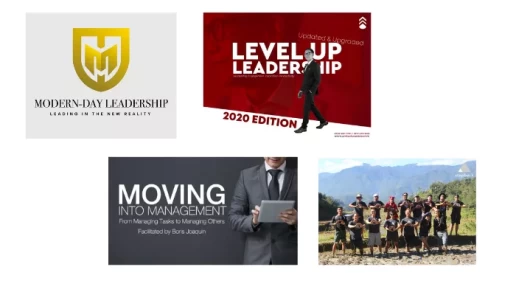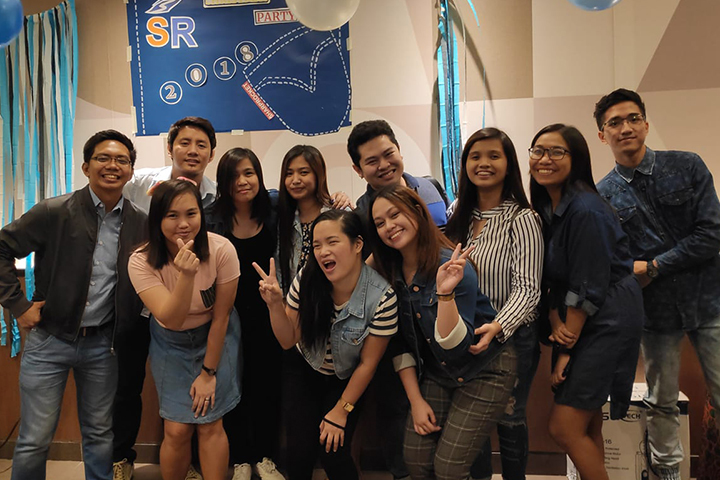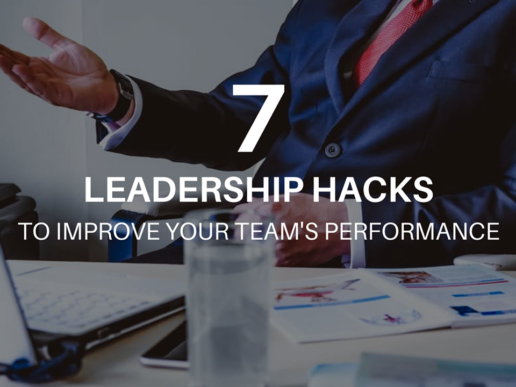Integrity in Leadership - Building Trust and Accountability in Your Role
Integrity in leadership is practicing a holistic perspective and disciplining yourself in all your current roles.
Integrity comes from the term “integer, " meaning “whole”. So, an integrity-driven leader walks the talk and talks the walk in all of their areas of life.
Integrity has proven to be the highest value for companies in building a trusting work environment. Not only does it help the leaders establish their credibility in front of their associates, but it also helps promote a healthy work atmosphere for all employees.
Simply put, when leaders have integrity, employees can easily say what they say and model their behavior. Therefore, integrity in leadership helps build faster and more effective communication in doing what is supposed to be done for the team and the company.
How to Practice Integrity As A Leader?
Integrity is essential in leadership. That’s the reason why anyone must develop it over time. Here are some ways to practice integrity as a leader:
1. View Life With A Holistic Approach
This means that you don’t play multiple personalities in your roles. You don’t say and act good with friends and colleagues but play a miserable role at home as a husband or father.
You do what you say and behave as you talk whenever and wherever you are. Integrity is doing the same actions in every role of life.
Life comprises different domains - parental, physical, marital, spiritual, emotional, and social, to name a few. These domains are essential to bring anyone to grow in their potential.
Being an integrity-driven leader means that you take care of all domains of life. You don’t let neglect in any areas, as it would otherwise affect you negatively in the future.
Be an excellent person across all domains. And you’ll find yourself to achieve progress and become successful in your holistic life.
2. Be Vulnerable
Most people think that successful people never make mistakes in their lives. That’s not true. Most successful people have made more mistakes than others, but the only difference is that they learn from those mistakes.
Being vulnerable shows other people that you’re a human being capable of failing but learning and growing simultaneously.
Integrity in leadership is showing who you are as a person. And employees appreciate it as they can see the real you instead of the leader pretending to be somebody else.
3. Make Wise Decisions
The people you are leading depend on your leadership and decision-making skills. They move and take action based on your vision and direction.
If you make wise decisions, you model the correct type of leadership. And thus, it allows for better communication and harmony in your teams.
Think twice or more times before deciding on significant projects. Be a person of value and learn from others so you’ll have better options and different points of view before making a decision. This helps you avoid mistakes and be more powerful.
4. Develop Practical Disciplines
Discipline is what sustains people in the success area. Practicing disciplines daily helps leaders achieve results and build the right momentum in their leadership roles.
Practical disciplines lead to bringing that integrity into place in someone’s life. You can’t see a person of integrity without measured discipline. Either he or she relentlessly pursues his purpose in life and brings the highest value in the marketplace. Both of these show their practical disciplines.
5. Stick To Core Values
Core values are sets of principles that build the foundation of your life. It is what you stand for and guides your decision-making process.
Every minor and major decision is based on your core values. Your core values will set your leadership's “why” or purpose.
Through these core values, you also guide and lead your team in making decisions and pursuing excellence and growth in themselves.
In companies, there are corporate values that every employee must practice in their corporate lives. These values aren’t mere statements posted on the office walls.
6. Excel in Coaching
Coaching is vital in elevating performance and engagement with direct reports at work. Through effective coaching, you understand your associates better, professionally, and in their holistic lives.
Coaching helps develop integrity in your leadership by strengthening relationships with direct reports. By understanding how they feel and behave better, you’ll identify specific leadership styles that can best work for them.
One advantage of regular coaching meetings is that you can identify performance gaps in your direct reports. You’ll then see what hinders them from achieving their KPIs: performance gaps. And by recommending methods to improve their work productivity, you can see more positive changes in their work.
7. Communicate Your Values, Vision, and Mission
Effective communication is one critical skill of integrity-driven leaders. They communicate their vision, mission, and values that encourage and inspire their direct reports to grow professionally and personally.
One benefit of being an effective communicator is handling conflicts effectively. As we all know, we can’t avoid conflicts caused by personality differences. However, we avoid unnecessary conflicts that might cause team division through coaching and effective communication.
8. Be Courageous
Courage is a visible trait of integrity-driven leaders. By taking risks and conquering mountains of challenges, they achieve progress and achievements in their career and personal life.
While others succumb to fear and self-doubt, courageous leaders take their lives to the next level of personal growth and significance. It may be daunting at first to try new things, but integrity-driven leaders start and discipline themselves even when they are not motivated to start.
Courageous leaders are disciplined enough not to be mastered by their emotions but the other way around. They learn how to control and manage emotions and take action immediately to achieve small wins and build the right momentum for growth.
9. Be Trustworthy
Trust is earned through excellence in actions and results. People won’t trust you only with your words but with your activities.
One true mark of an integrity-driven leader is trust. Earning it and sustainably achieving success by expanding their business networks.
Networking becomes more meaningful and effective within the boundaries of trust. As more people see your work of excellence, they tell it to their colleagues (word-of-mouth marketing), which enlarges your business networks.
10. Upgrade Yourself
Integrity in leadership helps you upgrade yourself to achieve new heights in your career. When you discover new things and apply these lessons in your life, you start seeing results in your mindset, performance, and productivity.
Continuous development builds more integrity in your life, as you can be more self-aware of your strengths and maximize them to the fullest.
11. Learn To Sacrifice
Integrity builds up when you learn to sacrifice. Success requires counting the cost and paying the price to achieve great things.
Integrity-driven leaders invest their resources (time, money, attention, and energy) in things that will add value to their success goals. They know it takes sacrifice to see momentum in life and are willing to pay for it.
12. Serve Others
Integrity has a significant impact on leadership. People of integrity serve others wholeheartedly. They seek first the needs of other people before themselves. By attending to the needs of their direct reports and serving them well, people appreciate the value and become more inspired by their work.
Key Takeaways
Integrity is beneficial in many ways, as it helps you become more trustworthy and gain the desired respect you need to do better in your leadership roles. Apply the tips I shared above on how to practice integrity in leadership. And you’ll be amazed at the results it could make in your character and competence.
Bayanihan Spirit: Uniting Communities for Collective Progress and Resilience
Bayanihan is uniting heroes to contribute value to the community. We want to embody the “bayanihan spirit” in every part of society, including the private sector.
In this guide, I’ll provide tips on developing the “bayanihan spirit” in the workplace.
How Do You Develop Bayanihan Spirit in the Workplace?
1. Lead by Example
It starts with the l leaders of the organization. From executives down to associate managers, leaders must demonstrate a strong sense of teamwork and cooperation among themselves.
When employees see their leaders actively collaborating, it sets a solid example of how Bayanihan works.
Imagine if most leaders promoted collaboration and harmony in how they planned and executed tasks. It would be much easier for team members to follow their example.
Leading by example is one of the most superb forms of leadership. Personal leadership allows ranking professionals to be more aware of their actions and words at work and toward their colleagues.
Personal leadership empowers their associates to check on themselves and be more accountable to their leaders.
2. Create a Supportive Environment
Foster an inclusive environment where employees of different races, religions, ages, and cultures can work together. Being an inclusive leader helps your team members appreciate their diversity more instead of considering it a barrier to developing their teams.
Encourage open communication where people are psychologically safe to say their suggestions and participate more in brainstorming discussions. It is best to help them be active listeners and empathize better with others.
3. Team Building Activities
See the importance of team building activities and request it with your human resource (or human capital) department to organize team building activities and workshops that promote cooperation and teamwork.
These activities include trust-building, collaboration, effective communication, and problem-solving challenges, which can help unite the teams and accomplish the organization's shared goals and mission.
Hire a team building facilitator to conduct comprehensive, fun-filled team building activities for your employees.
4. Define Common Goals
Define and communicate your organization's mission, vision, and core values. By effectively sharing these essential facets of your company, you’ll help your employees understand why they are doing what they’re doing at work.
So, their individual goals will eventually be aligned with the broader goals of the organization. Define the common goals with your executive or management committee. Then, properly cast these goals down to the bottom.
5. Encourage Collaboration
Bayanihan takes place when there is collaboration. So, you have to create an atmosphere where people from different departments can collaborate regardless of their differences in functions and roles at work.
You can hire an external team building facilitator or experienced corporate trainer to conduct team building and workshops for the different departments of your organization.
So, more than conducting town hall meetings where your CEO or top leader would speak about their goals and what they want to achieve, you have someone from other organizations who can inspire and encourage your team members to grow and do better at work.
6. Recognize and Reward Collaboration
More than just encouraging collaboration, you have to create systems to recognize and reward teamwork. This is how you acknowledge and celebrate your employees' hard work.
Some rewards include bonuses and public recognition during special events, which increases the awareness among your teams that your organization is exemplifying the Bayanihan Spirit.
7. Encourage Knowledge Sharing
When there is psychological safety, employees have more courage to share their expertise, experience, and learnings with their colleagues. This promotes the Bayanihan spirit, which is more conducive to the growth and development of every individual in the organization.
Set up meetings with your team members where they can freely share learnings at work with other team members. Encourage knowledge sharing as it helps individuals gain a better understanding of their work and become self-aware of their capabilities and strengths.
8. Provide Training
Sustainable organizations understand the purpose of training and seminars for their employees. Investing in them yields a huge ROI regarding productivity and team performance.
If you’re an entrepreneur or one of the key decision-makers in your company, you should conduct training programs that focus on teamwork, effective communication, and conflict resolution.
You may also conduct training and seminars on basic leadership, coaching training for managers, or sales training.
You can check out lists of leadership training programs and sales programs that effectively elevate employees' skills in any organization.
9. Give Back to the Community
In the corporate world, this is called corporate social responsibility (CSR). Companies encourage their employees to participate in community service or volunteer activities.
This is also one good way for employees to act and work together as a team. It helps them strengthen their bonds with colleagues and reinforces the idea of giving back to their communities. It is one of the core aspects of the Bayanihan spirit.
10. Communicate Regularly
Effective communication involves regularly delivering essential messages to the key recipients. In the workplace, you inform your employees about the company’s progress, challenges, and successes.
By being transparent with how the organization works, you can build trust and a sense of collective responsibility.
Regular communication involves sharing personal experiences that help others to know more about their colleagues better. There is value when people become more bonded (more than just being a colleague at work), but as friends that strengthen and helps them achieve holistic well-being.
Effective communication helps in personal development. It affects all aspects of personal development, which includes parental, marital, financial, and social.
When employees learn effective communication, they can achieve holistic wellness and well-being, which, in turn, helps them become more productive in the workplace.
We all know that when someone has high self-esteem at home, it translates to better them in the workplace. They exhibit better behavior and actions that stem from their core identity.
11. Lead Team-Building Discussions
Hold team meetings that reflect the Bayanihan spirit. Initially, you can facilitate interactions among meeting participants. Then, do it at scale with your other employees.
The main idea here is to lead team building discussions where you allow everyone to share their thoughts and ideas. You can group them first by two so they can only filter what is pleasing to share, which saves you a lot of time and resources. Then, another couple of minutes to share among the group.
Key Takeaways
The Bayanihan Spirit is not only an old tradition habit of Filipinos. It is the core of what we do as fellow citizens. And if we can bring the same camaraderie spirit to our workplaces, we’ll have a better and healthier atmosphere where people feel safe, valued, and appreciated.
Best Leadership Training Programs in the Philippines (Reviewed)
You’re probably an HR practitioner, event organizer, and in-house learning and development officer looking for ways to improve your people through leadership courses.
Let me give you five of the best leadership training programs in the Philippines, some of which I’ve personally attended (Venchito speaking), and you can attest to the level of content and insights you’ll get from them.
I’ve shared my best insights and what I think the leadership program is for.
Best Leadership Training Programs in the Philippines
1. Modern-Day Leadership Training Program By Rainmaker
I know it’s weird to take this on top of the list of leadership training programs in the Philippines. But I highly believe in our own leadership training course.
Some of our recent clients include insurance companies such as Cocolife and Prulife. Cocolife hired me (Venchito) to conduct a comprehensive leadership training program for their top sales directors.
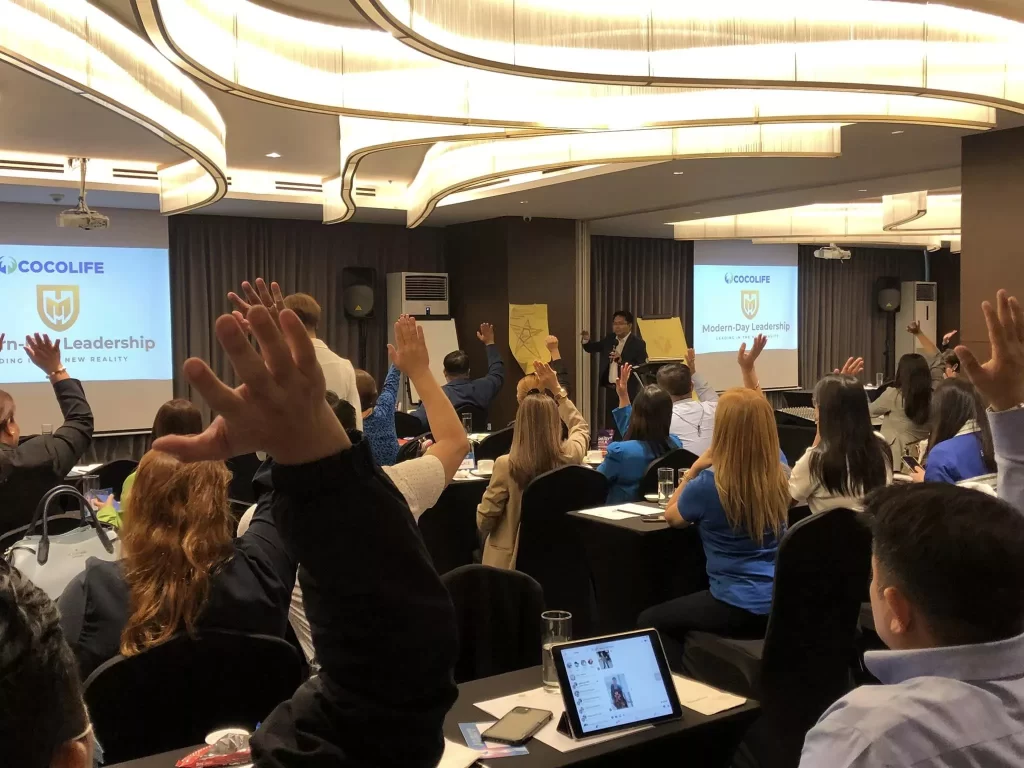
Modern-Day Leadership Training program is designed for managers, supervisors, soon-to-be-promoted leaders, and executives to upgrade their skills and attitude in learning their people.
With the new workforce (Gen Zs), this leadership program aims to give you upgraded and relevant information on the challenges leaders face today, including multi-generational communication issues.
By focusing on these five pillars (see image below), we can help you develop the right leadership style centered on values that can guide your team toward getting results for your company or organization.
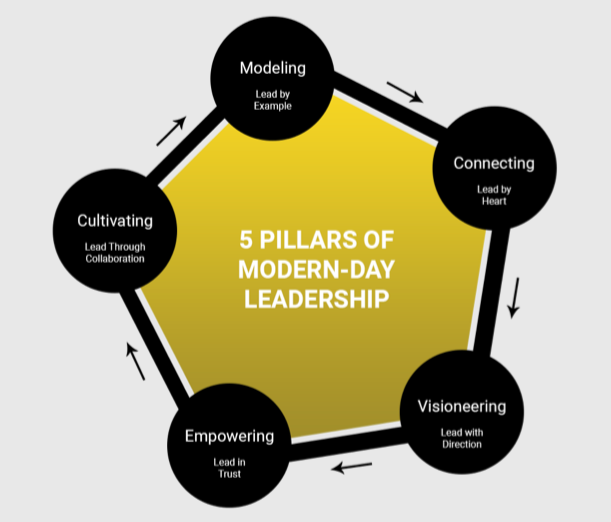
These five pillars include:
- Modeling - Lead by Example
- Connecting - Lead by Heart
- Visioneering - Lead with Direction
- Empowering - Lead in Trust
- Modeling - Lead through Collaboration
Previous clients who requested this topic from Venchito include:
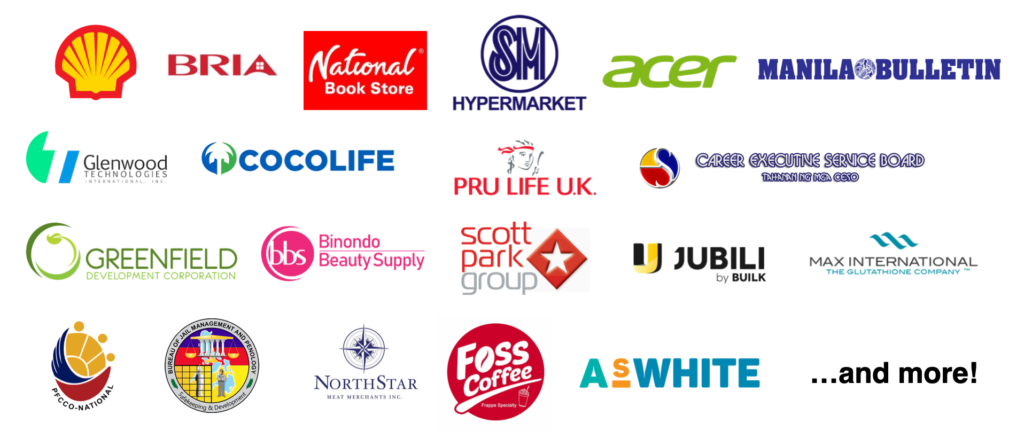 What makes the Modern-Day Leadership Program different?
What makes the Modern-Day Leadership Program different?
1. It is centered on values.
Other leadership programs may be focused on developing skills, which is greatly important in today’s changing business landscape. However, I still believe in building the proper foundation of character for leaders.
If leaders operate on their personal values, aligning them hopefully with the values of their organization, they can be more effective in handling people in such a way that they do more than what is required of them.
They cater to the needs of their people instead of only trying to satisfy their desires and needs.
2. It contains relevant information.
I loved books, but some of the leadership books may not be relevant to today’s leadership culture. Leadership trainers must continually upgrade their materials to be more relevant in how organizations develop their leaders.
With the rise of technology and automation, how can leaders adapt to employees' ever-changing needs and changing business landscape?
You can see the relevance factor in corporate training materials when the Filipino corporate trainer provides real-life examples and case studies in the workplace. All these give insights that training participants can take home to their workplaces.
3. It guides participants to develop leadership habits.
Modern-Day Leadership Program gives you a framework for the habits you have to build as leaders and tools and strategies you can utilize in different leadership situations.
When you’re still starting as a leader and have been leading people for a while, there are specific leadership theories and principles you must adapt to that situation.
Habits will help you teach discipline in your leadership life. That said, with our leadership training program, you can experience how to build healthy habits to support your everyday leadership role.
Bring Modern-Day Leadership Program To Your Company
Invite Venchito Tampon and his team to conduct a Modern-Day Leadership Training program so you can upgrade the leadership skills of your employees and executives. Contact us to set an initial meeting and get a free quotation.
2. Level Up Leadership by Francis Kong
Considered the top-ranked speaker, trainer, and business consultant, Francis Kong’s best-selling training program has helped thousands of leaders from different organizations across different industries.
I (Venchito) personally attended his Level Up Leadership in 2019, and I would say I’m a recipient of the valuable lessons and insights from Mr. Francis Kong himself.
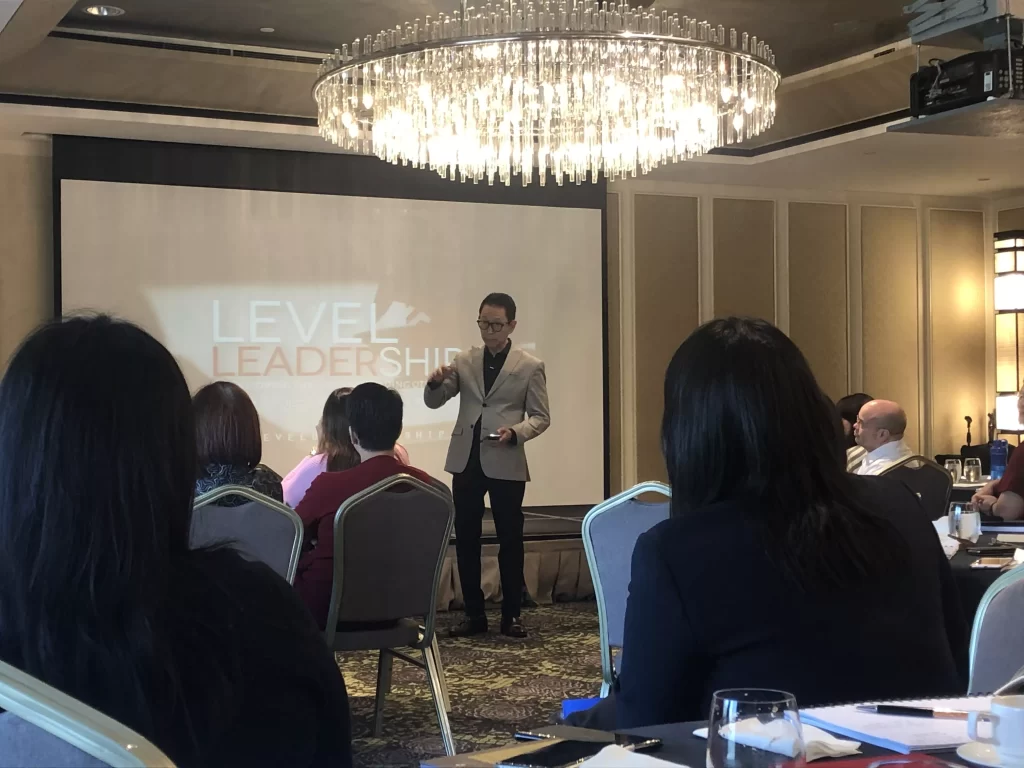
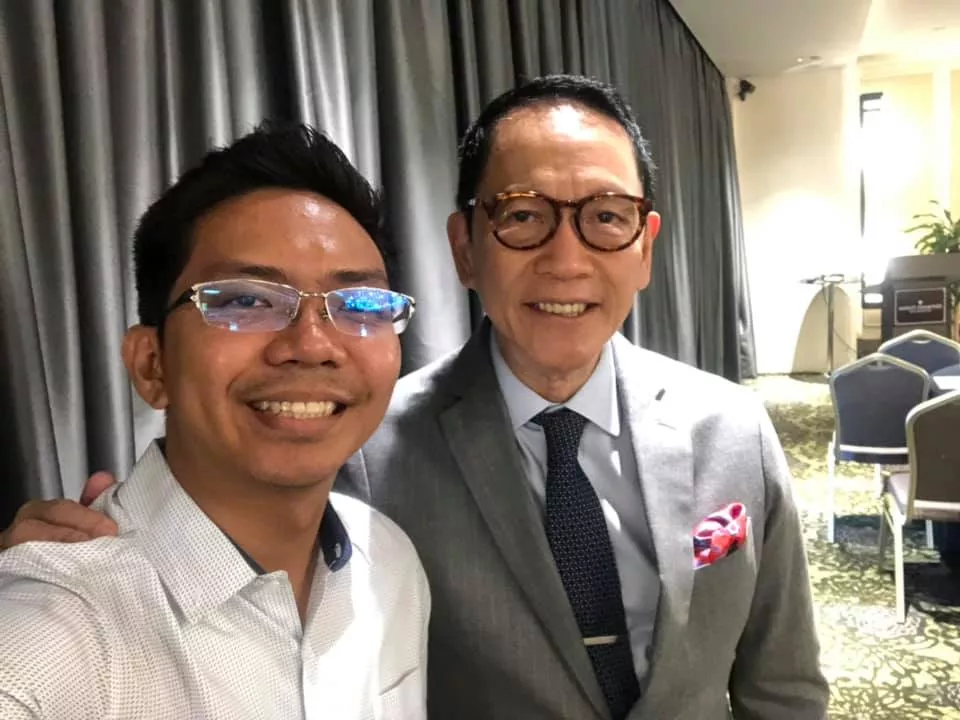
What I liked about Level Up Leadership?
- Leadership methodologies from different generations. Mr. Francis Kong will show you how leadership has evolved over 50 years from how Baby Boomers used leadership as a tool to manage their business to where it is today, working with the Generation Z workforce.
- It is centered on values. Though Mr. Kong will show you the exemplary leadership skills to pursue, including how to ask relevant questions and engage your people, you won’t miss topics about values and character development.
- The subject “servant leadership” is included in the program. As far as I remember, it is one of the last topics he discussed that shared how Jesus led his 12 disciples - which is the most impactful part of the program.
- Relevant case studies and group discussions. Mr. Francis wants his audience to engage with one another, which means group activities where sharing and discussion are highly encouraged. I loved this part because you’ll have plenty of time to network with like-minded individuals and learn how they apply leadership in their respective industries.

Who does Level Up Leadership cater to?
Intermediate to advanced-level leaders, i.e., executives, deans of schools and colleges, government officials, and high-level directors and managers. Most topics are advanced and well thought out towards a high-level knowledge. That said, the program is still excellent and applicable for newbie leaders.
3. Moving into Management by Boris Joaquin
This is another leadership training I attended in 2019.
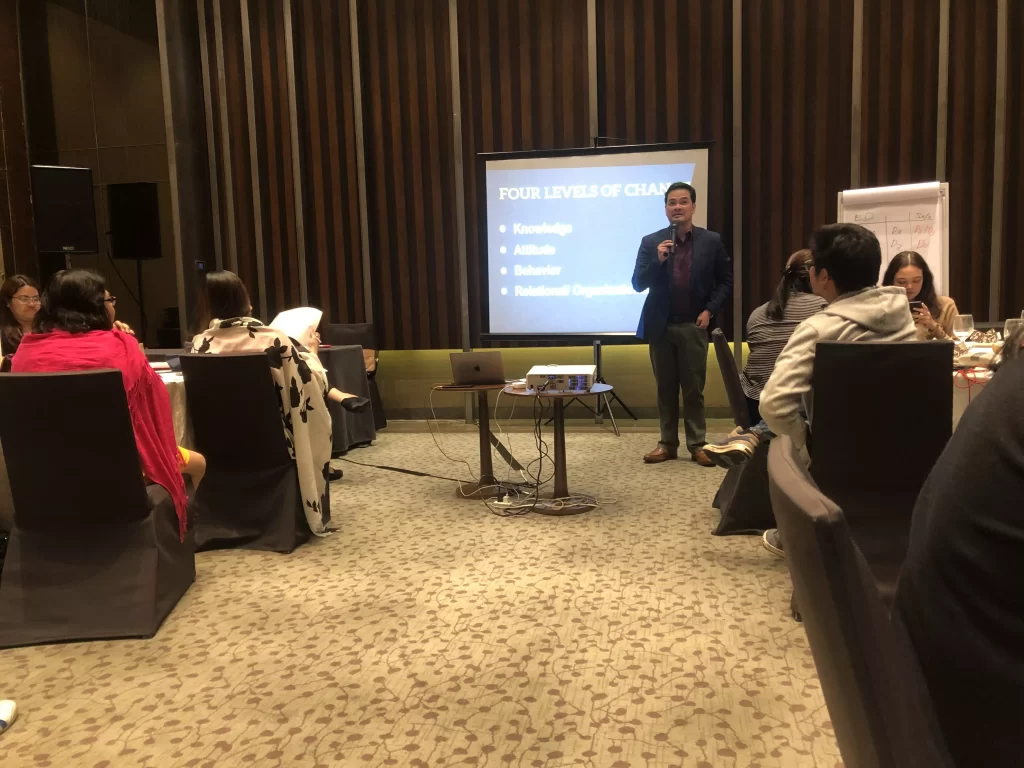
Boris Joaquin is one of the premier leadership corporate trainers in the country. Having been sought by the top 1000 corporations and SME leaders, Boris knew how to conduct leadership training that could best serve his audience.
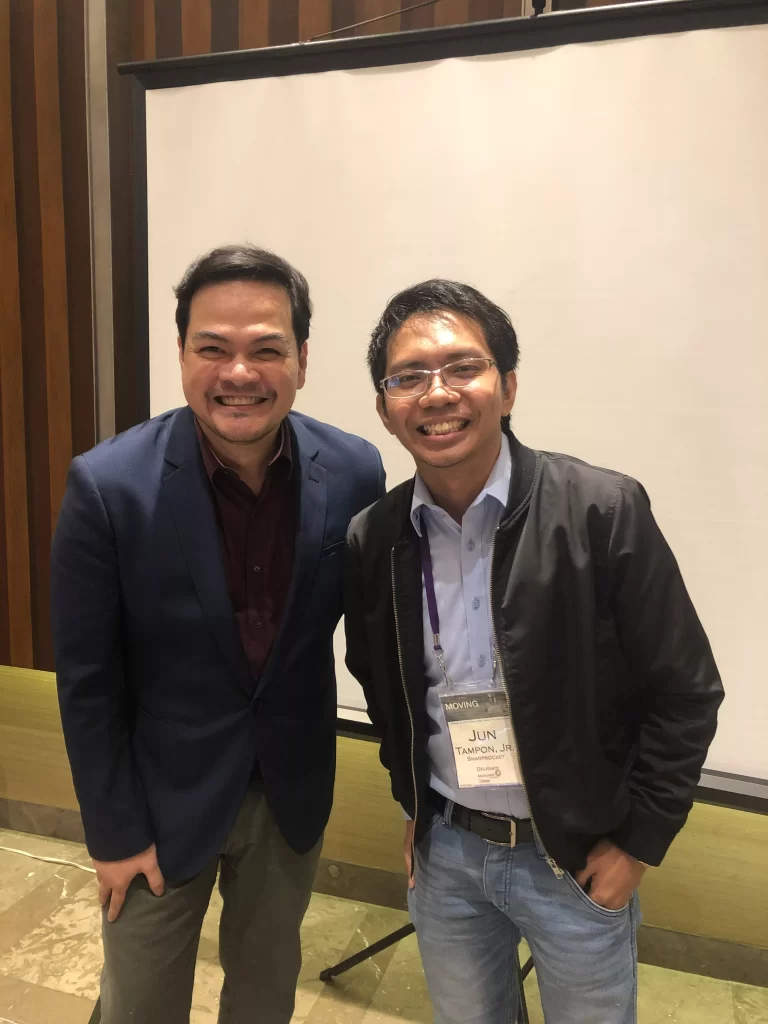
What I liked about Moving into Management?
- Easy to understand principles of management and leadership, i.e., the fundamental differences between management and leadership.
- Group activities to help you understand better yourself as leaders and how to apply specific topics to everyday living.
- Plenty of time to network with other corporate leaders.
- Fun and light environment. You would find yourself having fun while learning at the same time.
- Excellent workbook I can take home and get more insights from.
Who does Moving into Management cater to?
Moving into Management program is catered to rank-and-file employees or any position soon-to-be organization leaders. It is a preparatory training to help them understand what management and leadership is all about.
I believe this program isn’t for advanced-level leaders. However, some of the principles still apply to executives and directors in the company.
4. Step Back Leadership by Lloyd Luna
I haven’t attended any Step Back leadership program of Lloyd Luna. Yet, based on the videos and stories he posted, I can attest that his leadership program has truly helped many leaders in different organizations.
What I liked about Step Back Leadership
- Step Back Leadership is rooted in how ancient leaders lead their people and conduct succession planning programs.
- Local context. You would find the difference between how local leaders and Western counterparts lead their organizations. There is a significant difference; you would understand the principles behind how we are wired to be led.
- Simple to understand. You can have this leadership program for every level of employee - rank-and-file, managers, supervisors, and executives.
5. John Maxwell Leadership Trainings
Certified John Maxwell Trainers, including Ardy Abello, Anthony Pangilinan, and Mondo Castro, also brought Western leadership programs here.
Needless to say, Dr. John Maxwell is considered the world’s leadership expert who has written hundreds of books on leadership and success.
This is a testament to his global impact and the value and quality of his leadership programs.
What I liked about John Maxwell's Leadership Training:
- Timeless principles. John Maxwell is pretty good at creating laws for every topic, including communication, leadership, and success. These laws are evergreen and can be applied to every context, industry, organization, country, and age.
- Simplicity. You don’t have to be highly educated to understand his principles. Maxwell is pretty good at simplifying things and making it easy for you to apply in everyday life.
- Inspirational. Most Maxwell training programs and books have an element of inspiration in them. Even just reading his books, you’ll feel a sense of inspiration to take action and level up your leadership game.
Key Takeaways
That’s it. Those are leadership training programs in the Philippines, some I’ve personally attended and reviewed, so you know what to expect in the corporate training.
If you’re looking for a corporate trainer to level up your leaders, contact us for a free quote on our Modern-Day Leadership Program.
Young Filipino Entrepreneurs in the Philippines
In the dynamic landscape of the Philippines, a new generation of young Filipino entrepreneurs is making waves and inspiring others with their entrepreneurial journeys.
From the bustling streets of Manila to the serene provinces, these Filipino entrepreneurs have carved their paths to success. They are now sharing their stories to motivate and guide aspiring individuals. This article presents a curated list of the country's most influential and sought-after Filipino entrepreneurs.
Their tales of perseverance, innovation, and triumph will ignite the spark within you, encouraging you to pursue your dreams and embark on your entrepreneurial adventure.
Get inspired as we showcase the remarkable individuals shaping the business future in the Philippines.
Best Young Filipino Entrepreneurs in the Philippines
Alvin Ong, CEO of Fredley Group of Companies
Alvin Ong, a young Filipino entrepreneur, has carved his path to success as the founder and CEO of the Fredley Group of Companies. His journey began humbly as he devoted himself to packing and assembling hangers to support his family. At the tender age of seven, he ventured into tutoring, displaying his eagerness to learn and share knowledge.
Equipped with an MBA degree from Ateneo de Manila University and ESSCA-École de Management in Budapest, Hungary, Alvin Ong's educational achievements testify to his relentless pursuit of excellence. His De La Salle University honors degree further solidifies his dedication to acquiring knowledge. With invaluable experience gained from working with Deutsche Bank on a global scale, Alvin, at just 28 years old, emerged as a self-made entrepreneur of extraordinary caliber. In recognition of his outstanding accomplishments, he was honored as an Injap Sia Outstanding Young Entrepreneur in 2018, an accolade that further fueled his determination to achieve greatness.
Alvin Ong's exceptional talents have not gone unnoticed. Asian Dragon Magazine and The CEO Magazine hailed him as a young visionary restaurateur, acknowledging his excellent skills and innovative mindset. His story has been featured in various publications, highlighting his remarkable achievements in the industry.
Alvin oversees 180 restaurants and café branches across the Philippines, providing employment opportunities for over 1,000 individuals. The Fredley Group of Companies boasts an impressive portfolio of nine distinct brands, including renowned names such as Macao Imperial Tea, Nabe Japanese Izakaya and Hot Pot, 107 Co-working, Mitasu Yakiniku, New York Fries and Dips, Liang Crispy Roll, and Hosaku International Buffet.
Recent accomplishments include the acquisition of Café Kitsuné from Paris, France, further expanding the group's international presence.
Even in the current global pandemic, Alvin Ong remains steadfast in his pursuit of excellence. Undeterred by the challenges, he envisions a future where his enterprise thrives. His unwavering ambition is evident as he strives to establish 250 branches by 2021, a testament to his indomitable spirit and relentless pursuit of success.
Venchito Tampon, CEO of SharpRocket and Hills & Valleys Cafe
Venchito Tampon, a trailblazing entrepreneur from the Philippines, has made a remarkable impact in the digital marketing and food and beverage industries. As the founder of SharpRocket, a leading digital marketing company, Venchito has successfully served clients across the globe, helping them skyrocket their online revenue through effective SEO and social media campaigns.
His expertise and thought leadership in the field have gained recognition from prestigious publications like Inc. Asia, Forbes, Huffington Post, and Moz, establishing him as a respected professional.
Not limited to the digital realm, Venchito's entrepreneurial spirit also extends to the realm of coffee. He is the Founder and Business Developer of Hills & Valleys Cafe, a beloved coffee brand known for its premium quality, affordability, and exceptional customer service. With his strategic marketing initiatives, Venchito has strengthened brand awareness and enhanced the in-store experience, solidifying Hills & Valleys Cafe as a go-to destination for coffee enthusiasts.
In 2023, Venchito embarked on a new venture with Blend N Sips®, a company dedicated to empowering aspiring food and beverage entrepreneurs. As the authorized dealer of renowned brands such as Breville and Gemili, Blend N Sips® supplies essential equipment and quality products to budding coffee and milk tea businesses, ensuring their success and customer satisfaction.
Recognized as an influential speaker and mentor, Venchito has shared his marketing, career development, and entrepreneurship expertise at numerous conferences, seminars, and conventions. He has represented the Philippines in global events such as Affiliate Summit Asia Pacific, engaging with industry leaders and inspiring audiences worldwide.
Beyond his entrepreneurial pursuits, Venchito actively contributes to the Philippine business ecosystem's growth as a GoNegosyo mentor. Through this organization, he advocates for a change in mindset and encourages individuals to embrace entrepreneurship to address poverty and create positive change in the country. Additionally, Venchito's book, "Career Crossover," has empowered professionals and businesspeople alike to succeed in today's dynamic job market, equipping them with critical skills and productivity strategies.
Venchito Tampon's journey as a Filipino entrepreneur embodies resilience, innovation, and a commitment to uplifting others. His achievements and contributions are a testament to the remarkable potential of young entrepreneurs in the Philippines, inspiring others to pursue their dreams, make a difference, and thrive in the ever-evolving business landscape.
Mica Tan, CEO of MFT Group
Mica Tan, a dynamic young entrepreneur, has emerged as a prominent figure in the Philippines as the founder of MFT Group, a highly successful private equity firm. At 19, Mica boldly embarked on her entrepreneurial journey, setting the stage for a remarkable career. Today, at 27, her firm operates in nine countries and 18 cities worldwide, amassing assets valued at over US$61 million.
An unexpected catalyst spurred Mica's path to entrepreneurship: her first heartbreak. Faced with a pivotal crossroads, she chose to stay in the Philippines and establish her own company instead of pursuing a finance education in New York. Motivated by her determination to prove herself, Mica poured her energy into her career, aspiring for a day when her former flame would regret his decision to part ways. Interestingly, destiny had other plans, as the man who broke her heart eventually became her husband.
Throughout her journey, Mica encountered numerous challenges and was often underestimated, partly due to her petite stature of 5 feet 1 inch (155cm). However, she refused to let others' opinions define her. Instead, she focused unwaveringly on delivering exceptional results, using her achievements as her ultimate testament during meetings and discussions.
One of Mica's notable accomplishments is her strategic focus on legacy businesses within MFT Group. She recognized the significance of family-owned enterprises as the backbone of economies, especially in the Philippines, and sought to leverage their potential. Mica observed that family businesses offer better governance and have proven more profitable and reliable in generating revenues.
While some firms shy away from legacy businesses due to concerns about inheritance disputes, Mica recognized the lower probability of internal legal risks and saw it as an opportunity to attract more investors.
As a millennial CEO surrounded by a predominantly older generation, Mica embraces the challenges and advantages of bridging generational gaps. Growing up as the youngest among her siblings, who belonged to Gen X and baby boomer cohorts, she developed adaptability early on. In her company, she values and addresses each generation's diverse values and expectations, fostering an environment where managers understand and accommodate these differences without disadvantaging older employees.
While Mica has achieved remarkable success at a young age, she acknowledges women's gender-specific challenges in leadership positions. Despite not experiencing severe obstacles in the Philippines, where female presidents and CEOs have paved the way, she remains aware of the disparities encountered while traveling abroad. Mica believes that preparation, humility, and confidence in one's abilities are crucial for overcoming gender-related hurdles.
Mica's philosophy revolves around "failing forward." She views failures as opportunities for growth and emphasizes the importance of surrounding herself with individuals who excel in areas where she may fall short. By learning from those around her and building a strong team, she strives to avoid repeating past mistakes and continuously bounce back.
Throughout her career, Mica has gained valuable insights and advice. She advocates for selecting battles wisely, understanding that not all conflicts are worth the time and effort. She directs her energy towards more meaningful pursuits by focusing on her vision, dreams, and ideas.
Choosing to start her own business at 19, Mica encourages others to break away from social norms and embrace calculated risks. She believes playing it safe can be riskier in the long run, emphasizing the importance of seizing opportunities and enjoying the journey, regardless of the chosen path.
Mica attributes her success to the guidance she received from various mentors. Her oncologist father instilled in her the value of attention to detail, while her mother, a jeweler, taught her to navigate life with grace and build meaningful relationships. Additionally, influential business leaders who played a pivotal role in shaping Mica's career include a patriarch of one of the largest pawn shop chains in the Philippines.
This individual introduced her to the strengths and potential of family legacy businesses, which became a core focus of MFT Group. Another mentor in Mica's life is the president of one of the largest banks, from whom she is learning valuable lessons in efficient corporate governance, strategic growth through mergers and acquisitions, and staying ahead in the dynamic business landscape.
Mica envisions the next disruptor in the private equity industry. With a keen eye for value creation opportunities, she recognizes that specific disruption has become prevalent. The competitive landscape of private equity has evolved, with differentiation becoming more challenging. Mica emphasizes the importance of data-driven decision-making and investing in opportunities to gather and analyze valuable insights. Data has become a key driver of industry disruption, revolutionizing how investments are evaluated.
Francis Plaza, CEO of Paymongo
Francis Plaza, a prominent figure in the realm of Filipino entrepreneurs, is the co-founder and CEO of PayMongo, an esteemed online payments processing platform based in the Philippines. 2022 marked a significant milestone for PayMongo as it graduated from the prestigious Y Combinator and swiftly garnered attention and support.
Within months of its launch, the startup secured an impressive $2.7 million seed funding from notable investors such as Peter Thiel, co-founder of PayPal, the San Francisco-based VC firm Founders Fund, and fintech unicorn Stripe.
Before embarking on the journey with PayMongo, Francis Plaza's career trajectory demonstrated his exceptional aptitude and passion for technology. With a solid background as a software engineer at Oracle, Plaza honed his skills in the tech industry. Additionally, he co-founded Muber, an online marketplace, showcasing his entrepreneurial spirit and innovative mindset.
Francis Plaza's academic achievements are equally remarkable. Plaza's exceptional talent was recognized at a young age after graduating from the esteemed Massachusetts Institute of Technology (MIT) with a bachelor's degree in computer science and engineering. At the remarkable age of 16, he gained admission to MIT, firmly establishing himself as an extraordinary individual.
PayMongo, under Plaza's visionary leadership, has emerged as a transformative force in the digital economy of the Philippines. The platform enables businesses nationwide to accept online payments seamlessly through multiple channels. Plaza envisions PayMongo as an invisible commerce engine, propelling firms and entrepreneurs toward success in the rapidly evolving digital landscape.
The growth and accomplishments of PayMongo bear witness to its exceptional trajectory. As one of the fastest-growing fintech startups in Southeast Asia, the platform witnessed a staggering 40-fold expansion in 2020 alone. Moreover, PayMongo has raised nearly US$15 million to date, reflecting the confidence and support it has garnered from investors.
Francis Plaza's journey as an entrepreneur and technology innovator exemplifies the power of ambition, expertise, and vision. His contributions to the digital economy of the Philippines through PayMongo have paved the way for countless businesses to thrive online.
With a relentless pursuit of excellence and a deep commitment to empowering others, Francis Plaza continues to shape the landscape of Filipino entrepreneurship and inspire aspiring innovators throughout the country.
The entrepreneurial landscape in the Philippines is experiencing a remarkable transformation thanks to the exceptional talents and visionary minds of young Filipino entrepreneurs. These individuals have defied societal norms, embraced risks, and harnessed the power of technology to create groundbreaking businesses that profoundly impact the country's economy.
The future of entrepreneurship in the Philippines looks brighter than ever as these young trailblazers lead the way toward a thriving and dynamic business landscape.
7 Leadership Hacks to Improve Your Team's Performance
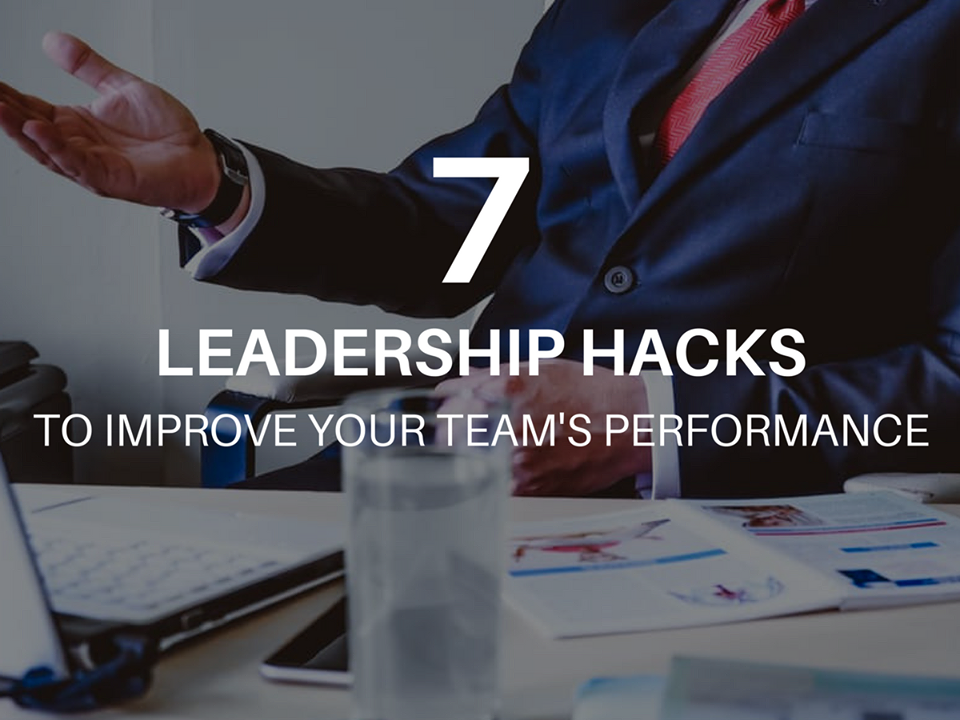
Leadership is easier said but done. Here are 7 leadership hacks you can use to engage your subordinates towards the improved performance of the team.
1. SET GOALS AT THE START.
Identify your goals at the very start. If you couldn’t determine it, clarify and ask from higher ups what your goals are so you won’t be executing actions not aligned to these. Winning is winning if you hit the mark. Otherwise, you still lose even if you completed projects that aren’t needed to pursue for the project.
Always set clear goals at the start. What is the team key performance metrics? How is it measured? Have you received any strict instructions while working on projects? These questions are imperative if you want to succeed as a team.
2. KNOW WHO NEEDS HELP.
One thing you have to master as a workplace leader (manager, supervisor, CEO, etc..) is knowing who is the weakest performer in your team. This is common and shouldn’t be a problem to you if you are always observing each of them.
Take 30 minutes or 1 hour of your time every week to analyse their individual performance. See who is the weakest and try to reach out to that person to know what he lacks and needs to improve on . It could be training from you, training in the internal process, compensation issues or even personal ones that he or she is willing to share just to take away the burden.
3. KNOW YOUR SUBORDINATES' PERSONALITIES.
There are bossy colleagues, playful ones, and easy-to-hangout-with-frien
This is important if you want to avoid conflicts, understand others, and try to look for common interests/grounds to avoid occurring of any professional yet personal problems.
4. DO 1 ON 1 CONVERSATIONS WITH THEM.
Spend time to have conversations with each of your subordinates. Taking 15 minutes to 30 minutes of your time to talk to them about their problems at work, their needs and their career aspirations. This allows them to feel comfortable working with you. This also gives them assurance that you’re leading them at best and not just instructing tasks just to get things done.
Strike a balance between friendship and professionalism. You don’t want subordinates to take advantage of built-in relationship with you. Make sure you discern this as soon as possible.
5. TWO-PUNCH RULE WHEN GIVING FEEDBACK.
What you say and how you say it can be different at times. Improving your delivery is a must if you want to convey the right message in a less-offensive manner. Remember you can’t be sarcastic at all times. Doing so for your entire career will do more harm than good.
Think thrice before you say something to your subordinate. Use two-punch rule when you have to give negative feedback to them. Tell the positive side of their work/story/contribution, then proceed to your actual feedback, that is the negative impression on the work.
6. WORK HARDER THAN YOUR TEAM.
Have you pondered why your subordinates aren’t productive or it seems they’re not working to achieve the goals set for the team?
It’s time to check your leadership. Are you working harder than your team or are you just commanding them to go over time but in most cases, you’re not willing to go out of your comfort zone and dedicate yourself to finish the project? They will only follow your actions if these match your words.
Always be accountable for the consequences based on team’s performance. Don’t try to blame others if it’s actually your fault not leading them to productivity. Check yourself always.
7. DELEGATE YOUR WEAKNESSES.
You are not the entire AVENGERS HEROES yourself. You can be Ironman, but not Spiderman at the same time. You have strengths and weaknesses.
Instead of focusing on improving your weaknesses, which won’t give you much results. Outsource or delegate to a subordinate you know who can do it best. Delegation is always a matter of removing your ego and being able to trust someone whom you think are capable of completing the task.
If you want to conduct a leadership training Philippines, contact us for a free training proposal.
Three Things You Don’t Normally Do To Engage Your Millennial Subordinates

This post won’t discuss managing millennials whom you think aren’t productive at all (that’s for another post).
Today, we’ll talk about how you can manage productive millennials that have yet to maximize their full potentials to become ultra-productive professionals.
1. Get them to buy-in by giving a clear direction
The most difficult part of being a manager is not managing tasks, but getting millennials to buy-in to what your team/company does.
Here are some ways to clarify to your subordinate millennial about his work:
- Does he really understand his work? The simple trick is here is to ask him the impact of his work to the overall operations of the department or, if it’s a startup, to the whole company.
- Are the expectations crystal clear? Your direct reports should be clear on what you need from him on a daily/weekly/monthly basis Otherwise, you can expect a below-par performance.
- Is the task something he can do? The longer and closer you work with him, the better you will know him and his capabilities. This is why relationship building is important.
- Ask him what he is enthusiastic about at work. What is he most excited about doing, whether he’s part of finishing the task or not?
- Let him know how his current and past work had added value to your team or your company. It’s a confidence booster and adds motivation.
These things can help get your millennial subordinates to buy-in at work.
2. Let them collaborate
Millennials love collaboration.
If your company has hired the right person for the job, a teamwork atmosphere should happen.
If you see some difficulties in handling some tasks at work, peer learning is a good approach. You can pair him up with someone else and have them learn with each other. As he observes how a task is executed differently and with more efficiency, he’d be able to adapt it to his own job as well.
Same task, better approach.
3. Use technology to support their needs
Millennials are labeled as lazy people.
Let’s stop that thinking as it only de-motivates people at your bottom line.
Some millennials aren’t lazy; they’re just distracted with their mobile devices. They can easily conduct multiple conversations at once across many different online platforms. It’s easy for them to get distracted.
However, that shouldn’t be a hindrance to doing their jobs well.
You can use the right technology to attend to their needs on certain tasks. If they’re struggling with priorities, let them use an app to manage projects or give them a to-do-lists with schedules.
Let them use a chat support or team collaboration tools like Trello for easy communication – in that way; they’ll use technology for work productivity (just make sure you monitor them occasionally).
YOUR TURN
How do you manage millennials to be ultra productive at work?
Leave a quick comment below.
I’ll be around today to reply to comments and answer questions.
If you want to conduct a leadership training Philippines, contact us for a free training proposal.
HOW TO DEAL WITH SUBORDINATES THAT CONSISTENTLY MISS DEADLINES
As a project manager, you can’t tolerate your subordinate who misses deadliness most of the time. One team member who’s not productively working might have a negative impact to your team’s performance or to your business if you’re an entrepreneur (it costs you money).
If one of your subordinates didn’t meet a deadline just once, give him the benefit of doubt. However, if he consistently misses deadlines, it’s time to address the issue.
Here are three actionable tips to help you deal with this kind of situation:
1. Identify the reason why he’s not meeting the deadline
There are two main reasons why a person doesn’t meet deadlines.
First, he is not really dedicated at work – an attitude case.
Second, he strives hard to meet the deadline but fails – a striving case.
One way to see which of the two things above may be his reason for not meeting deadlines is through effective communication.
You won’t get a good answer and he might only backstab you if you try to scold him. There’s a proper way to do it. During a 1 on 1 talk (informal or formal discussion), you can ask simple questions to help you sense which ones he is having a difficult time on.
It is your job to find what can be fixed immediately. Don’t neglect this as this will make your team performance suffer.
If it is an attitude case, apply tip #2.
If it is a striving case, apply tip #3.
2. Provide programs for character development
If he doesn’t care at all, it’s important to build a stronger relationship with your subordinate. The more he is open to you, the easier for you to discern what may be the cause of failure. This is not fail-proof, but if you take this a chance, you’ll see that you can solve other problems that subordinate might also been experiencing – i.e. he think he’s not well appreciated (yes, some employees are emotional), he thinks you’re not approachable so he thinks twice before he asks questions, so on and so forth.
If you are a stakeholder or an entrepreneur, incentives and rewards might also add motivation for your employees. It’s not money that will make them accomplish feats, it’s the sense of accomplishment on top of the reward that’ll push them to work excellently.
Incentivize based on key performance indicators (KPIs), either a two-day off from work if he meets a monthly or quarterly quota, employee bonus whether individual or team are good strategies to incentivize your staff.
Hire a corporate speaker or trainer to talk about WAVE – Work, Attitude, Values and Excellence to pump up your employees and do the jobs well. Remember, some bad attitudes are inhibited, and may only be solved with firm personal decisions to change.
3. Give solutions for internal and external factors
If it’s not attitude, what may be the other reasons?
For your striving subordinates that fail, there are six reasons why he didn’t accomplish the project on time:
A. Lack of Experience
This is pretty common for workers who just had a first jump to a project they’re not familiar with. If the company doesn’t have a robust training program before every new hire starts an actual task, this often leads to failure to complete the project.
If it is lack of experience, send your subordinate to a training program, preferably in-house, so you can pick and choose which ones are only needed for him to advance his skill.
If you are a startup entrepreneur, invest in creating a PIP (Performance Improvement Program) for your staff as he go along with the career journey in your company. This is to ensure that he has room for learnings new skills and knowledge in your industry.
B. Unrealistic Deadlines
There are only two people accountable to this: the project manager or the worker himself.
If the deadline is set by the project manager (YOU), which happens in most cases, then you have to review the project and see if there are any tasks inside the project that made the delay. You can streamline the process and breakdown workflow tasks to make it more efficient for your subordinate.
If the deadline is set by the worker himself, review if he is making promises beyond his capability. He may be using empirical evidence to judge his capacity. Over-optimism may be a problem here, but show him his past performance to determine if the deadline is feasible or not.
You can also incorporate safety buffers or allowances for your projects to compensate unexpected developments or immediate issues need to be resolved while working on the project.
C. Unqualified
You can’t fire your subordinate immediately. The best way you can do as of the moment is to move him into a more suitable position within the department or within your company. This can help maximize his strengths on things that he is capable of doing.
D. Lack of Resources
This is an external factor that the management and/or stakeholders can only provide. But if lack of resources is a serious matter why your subordinate(s) aren’t accomplishing tasks on time, this should be formally discussed in a meeting.
E. Workflow Loopholes
Better feedback loops allows you to improve your project management processes. This shouldn’t be done on an annual basis as it’ll take 365 days in order for you to improve the process based on workers’ feedback.
Add a regular feedback loop either bi-weekly or monthly to see where the gaps are and fill them in with necessary resources.
Another trick is to let your team members focus on the most important tasks within the day (20/80 principle). Accomplish big rocks first early in the morning. This helps your team to become productive, which can help you finish projects before the deadline.
F. Needs collaboration
Two heads are better than one.
This is true but make sure you’ve had a good knowledge of how many people are needed for unaccomplished project.
This is where micromanagement can be taken advantage of.
Temporarily micromanage him by doing the project side by side. If you’ve got technical skills and know-how, you can do the work and set an example of how each task is accomplished. While this will consume your time, he’d have a good glance if the deadline of the project can possibly be met.
YOUR TURN
Know other ways to deal with subordinates who consistently miss deadlines?
Have a follow-up question?
Leave a quick comment below.
I’ll be around today to reply to comments and answer questions.
If you want to conduct a leadership training Philippines, contact us for a free training proposal.
ON BEING MY FRIEND AND MY SUBORDINATE
How do you draw a line on being a close friend to your subordinates and being their immediate manager?
Building relationships with your team members is important to easily get them to follow instructions and let them learn from your mentoring and training sessions. To inspire your subordinates is the best leadership mission you want to walk through in your entire management years.
However, when friendship overtakes your authority and it becomes a detriment to your job as a boss, it won’t be too easy for you to get out of it and in most cases, might negatively affect how your boss (to whom you directly report) and your other subordinates perceive you as a manager in the company.
Here are three advice you can apply today if this situation happens or near to happen in your office.
Note: These tips are difficult to apply but if you don’t take any actions as sooner as possible, it would be more difficult for you to solve this.
1. Set the HOUSE rules.
There might be a case where you’ve been promoted and your friend becomes your subordinate, the initial feeling is to be awkward with how you relate with him or her. In this case, you have to set office rules properly. These rules aren’t your company’s policies and agreements – these are typically given during their first days and weeks when they enter the company, so don’t bother to talk about those things anymore.
What I mean with your own office rules is your direct reports, your KPIs (key performance indicators), what you want them to provide to you at the end of the day, week or month and what working style (employee to employer) would best fits for both of you. This way, you are helping your subordinate and your friend understands what you want your working relationship with him/her looks like.
This helps him see the bigger picture of work and set that mindset that work is work (in Filipino, walang personalan, trabaho lang).
2. Build authentic relationships with your other subordinates
Oftentimes, that certain case of having both a subordinate and a friend results to favoritism in any form and worse comes to worse, office gossip.
Prevention is better than cure.
One way to prevent those bad things to happen is to build authentic relationships with your team members.
Don’t always go out for lunch or dinner only with that friend. Invite your other subordinates to dine out you both. You want them to also feel that they are part of your team and not wanting to just be exclusive to certain people.
3. True friendship never ends after the performance review
Its performance evaluation and promotion time and you have to decide whether or not to give the right feedback and/or promote your friend.
My best tip for you is to set your emotions aside. Remove your emotions from decisions. When you rely on your emotions alone, i.e. thinking about what that person might feel if he or she is not promoted, you might face an unpleasant consequence for your actions.
Think about this way: true friendship doesn’t end if you make the right decisions.
It’s better for you to see the bigger picture. Ask yourself, what does the company requires from both of you?
That is to get things job done, right?
If that’s the case, whether or not your friend will be promoted, let him understand that you are doing it for the company and that’s the reason why you are giving him that kind of performance review.
It’s tough. Painful.
But you have a choice to make the right decisions.
YOUR TURN
Do you have any experiences managing your subordinate at the same time your true friend?
How did you handle it?
Or maybe you have a follow-up question.
Either way, leave a comment quick below.
I’ll be around today to reply to comments and answer questions.
So if you have a question or thought, leave a comment right now.
If you want to conduct a leadership training Philippines, contact us for a free training proposal.






